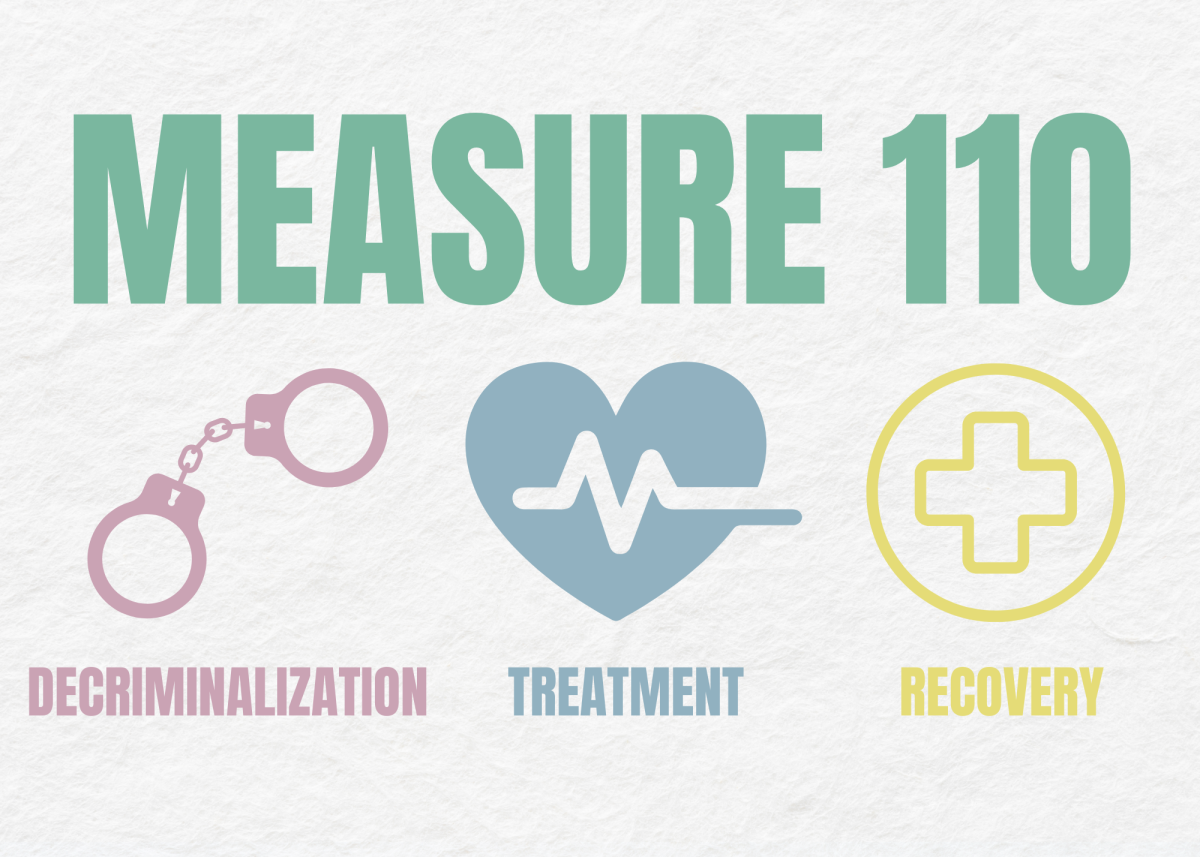The Oregon legislature is considering proposals that could re-criminalize drug possession in small amounts. These proposals aim to counteract components of Ballot Measure 110.
Measure 110, or the Drug Addiction Treatment and Recovery Act, passed with the support of 58.46 percent of Oregon voters in 2020. The bill decriminalized the possession of small amounts of controlled substances and established a drug addiction treatment and recovery program using funds from the state’s marijuana tax as well as money that’s saved from reducing the number of people sent to prison.
Since its enactment, an increasing number of Oregonians, including Mayor Ted Wheeler and Governor Tina Kotek, have called for its amendment. A survey in August of 2023 by Emerson College Polling showed that more than 56 percent of Oregonians support a total repeal of Measure 110.
Max Williams, a former Republican state lawmaker and former head of the Oregon Department of Corrections, believe that Measure 110 should be amended. He suggests re-criminalizing the possession of drugs and public drug use. Instead of paying fines and having the liberty to seek drug treatment, those charged will face jail time, which could force them into sobriety.
An audit by the Oregon Secretary of State’s Office in December found that since 2022, Oregon has provided $264 million in grants to 233 organizations throughout the state who provide treatment, counseling and harm reduction. However, the report also found it is not clear how many funded providers were actually reaching those who need addiction services. According to the audit, untracked workforce shortages and youth services add to the confusion on how funding is being distributed and used, making it difficult to gauge the effectiveness of the system Measure 110 is funding.
Tera Hurst, the Executive Director of the Health Justice Recovery Alliance (HJRA), works to realize the full potential of Measure 110. According to their website, the HJRA is an advocacy organization that focuses on, among other things, ensuring that Measure 110’s funding helps with “healing and restoring the communities most harmed by racist drug war policies.”
Since Measure 110’s implementation, Hurst has been working with local governments to preserve key pillars of the bill.
“Our biggest accomplishment at this point has been protecting decriminalization,” Hurst said.
Additionally, she has been working to ensure funding from the measure is allocated towards marginalized communities for harm reduction. According to the National Harm Reduction Coalition, “harm reduction is a set of practical strategies and ideas aimed at reducing negative consequences associated with drug use.”
The HJRA has “[been] getting funds out the door and not just out the door, but to organizations that really do serve the most marginalized and most vulnerable populations,” Hurst said.
So far, Hurst believes that the amount of people who have gotten access to recovery and treatment services has been the biggest impact that Measure 110 has had on the community.
“We will always be proud of [the fact that] tens of thousands of people statewide have gotten access to free, low barrier, trauma informed, culturally and linguistically specific care. Each person who gets connected to someone has a chance at getting into a more stable situation and then thriving,” she said.
Seniors Chloe Kitchin and Ouen Leip are both in the IB Higher Level (HL) Anthropology Class at Lincoln. They are learning about drug addiction and recovery among houseless people in both San Francisco and Portland.
Kitchin thinks that it is important to recognize the intersection between houselessness and the drug addiction crisis that is happening in Portland.
“I think money distribution [and public funding] could be done in a more equitable way, where we can see tangible change. With houselessness, drug addiction intersects with mental health, so it’s important to put more money into programs that combine all of those things,” she said.
Leip thinks people should demonstrate more compassion for those who are houseless and believes more funding can be allocated towards the issue. He supports having more rehabilitation houses and implementing more harm reduction and recovery strategies.
Leip has learned that oftentimes, when people with addictions are forced into sobriety through imprisonment or by other means, it leads to harsh withdrawal symptoms that make it hard to stay sober.
“I feel like one of the more important things is having a method of [recovery] that involves a doctor, and not a fast, cold turkey type of thing, but something like Methadone,” Leip said. Methadone, an opioid, reduces withdrawal symptoms and cravings in patients who have addictions to heroin.
Hurst believes that it is important to reframe the way we look at people who use drugs.
“This idea that somebody is a patient and not a criminal changes how you look at people, it changes how you treat people,” she said. “When you can only access [recovery] services through being incarcerated or being thrown in the back of a police car, you don’t want that treatment, because it’s attached to trauma.”
Hurst hopes that more people can engage in thinking through whether repealing or amending Measure 110 will really help people who are addicted and in need of help.
“It’s really important for students to dig into this because this drug war is continuing and we’ve got to dismantle it bit by bit,” she said. “It’s about showing up and making sure that people know that youth are paying attention.”
In the following weeks, Democratic lawmakers in the senate, in conversation with Republican senators, will release proposals addressing drug addiction, which will be discussed in the winter legislative session that begins on February 5th.


